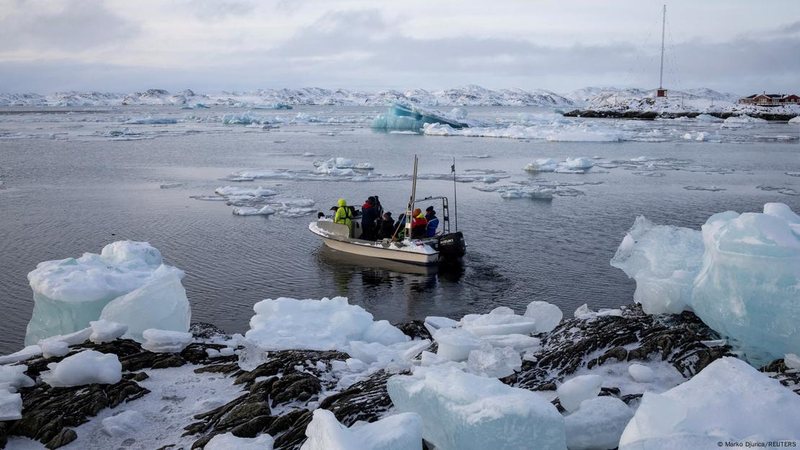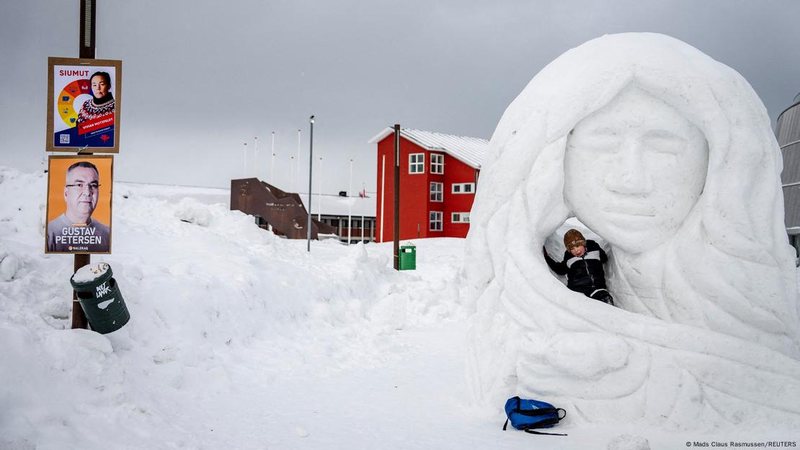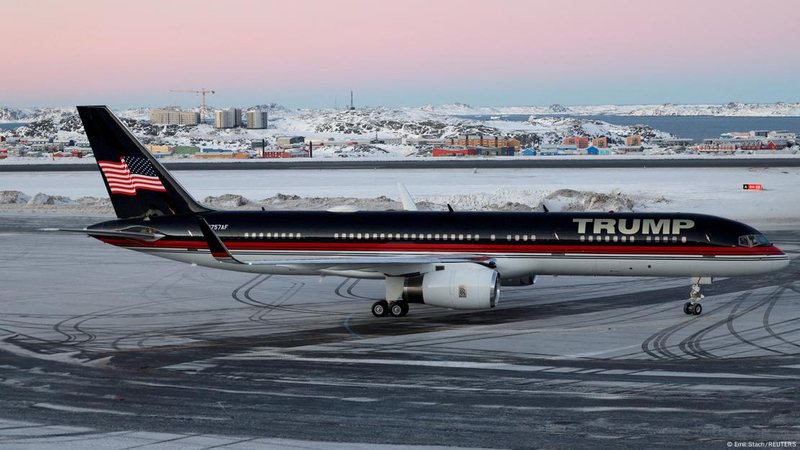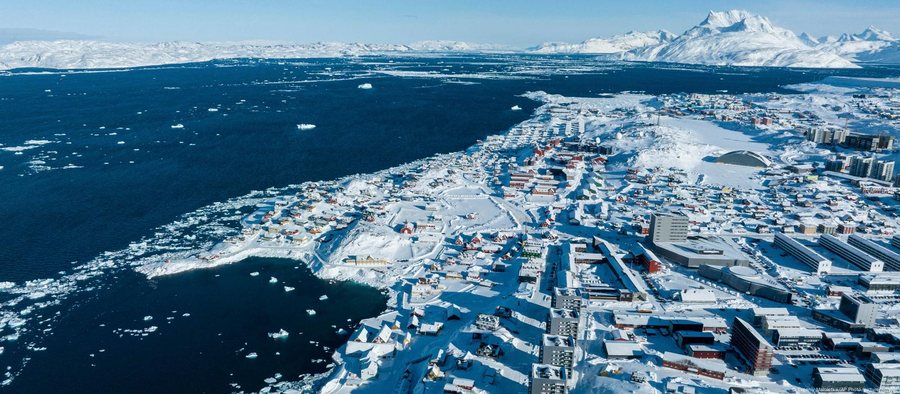
Greenland has very few inhabitants and vast mineral resources. Suddenly, even Donald Trump is now interested in it. On Tuesday, 40,000 citizens will vote for a new parliament.
Amid heated debate over US President Donald Trump's plans to take over Greenland, the people are electing a new parliament. Just over 50,000 eligible voters on the world's largest island cast their ballots for one of six competing parties on Tuesday (March 11).
Great interest
Greenland, the largest island in the world, is part of the state of Denmark, but enjoys extensive autonomy. Greenland still only shares foreign policy, security and finances with Denmark, but even this has its own specifics.
Greenland decided in 1985 that it did not want to be a member of the European Economic Community, or European Union, like Denmark. Before that, hardly anyone in the world was interested in the results of the regional elections there, where some sixty thousand Greenlanders will elect 31 members of Inatsisart, the local parliament.
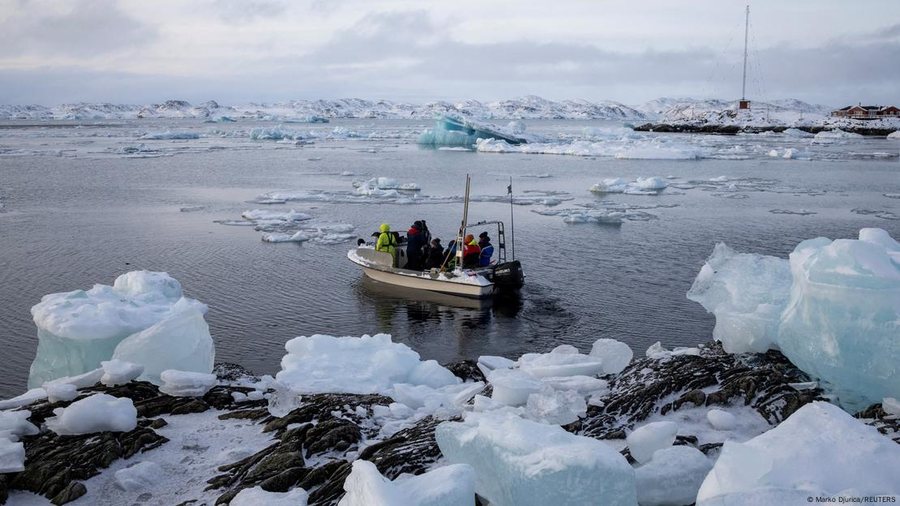
Before the new elections on Tuesday, interest was very high, among other things due to US President Donald Trump's territorial claims to "take" Greenland as a territory of the United States.
Militarily and strategically, Greenland has long been nothing more than an icy wasteland near the North Pole. Its territory is the shortest distance between the United States and present-day Russia, so in the 1950s, Denmark, as a member of NATO, allowed the United States to establish Thule Air Base in northwest Greenland. Today it is called Pitufik Space Base and is used for electronic reconnaissance and early detection of possible Soviet missiles aimed at the United States.
From oil to uranium
Greenland has also become interesting because of its mineral wealth. It is believed to contain oil and natural gas, but also metals such as gold, uranium and zinc - mainly in the south.
In his first term, Trump offered Denmark to "buy" Greenland - which Copenhagen categorically refused. But Trump has little respect for national borders. He wants changes not only in Greenland, but also in the Panama Canal, the capture of the Gaza Strip, the unification of Canada with the USA, etc.
Even before returning to the White House, Trump sent his son Donald Jr. on his plane to Greenland on a supposed “tourist trip.” In early March, Trump told the US Congress that he “supports their right to determine their own future,” but soon added: “I think we’re going to get Greenland.” “One way or another, we’re going to get it.” Greenlanders have a different opinion. A poll found that only six percent of Greenlanders could imagine annexation by the US, while 85 percent were against it. A much more widespread view is that Greenland should become a fully sovereign state.
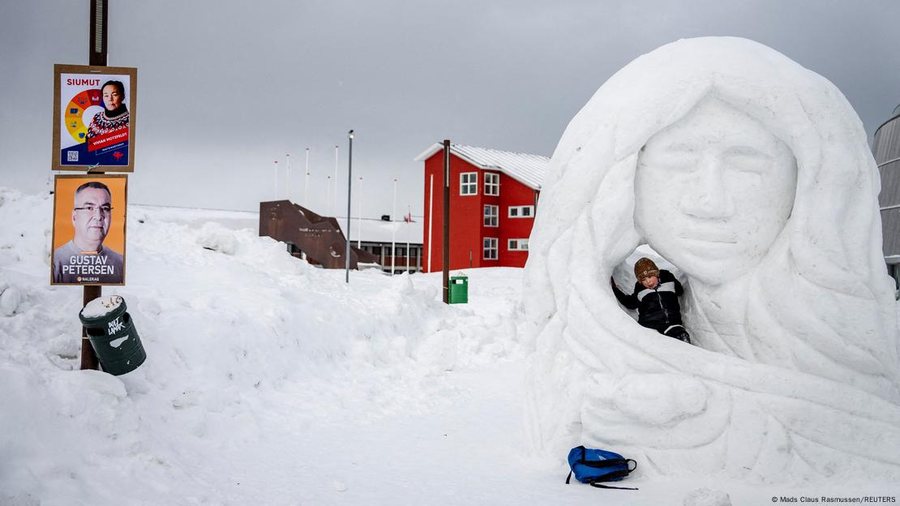
Foreigners don't have much of a chance there.
But in the quest for independence, mineral wealth is a key factor. Currently, about a third of Greenland's budget is filled with money from Denmark, because Greenland, by modern standards, is extremely underdeveloped.
There are almost no roads, because they cannot be built due to the ice, and most of Greenland cannot even be reached by ship during the long winter months.
Many new residents see no prospects, so if they don't leave, then alcohol – and more recently, drugs – seem to be the only "way out", which is a big problem.
The mineral wealth is a great chance to give young people hope for a better future, but Greenland wants to decide for itself who will take the concessions: American companies, the Russians or China, which also hopes to establish a foothold there.
As the Danish intelligence service PET warns, foreign intelligence services are apparently active even before the elections in Greenland. As is typical of Russian services, "numerous cases of suspicious online registrations" have been noted, which are linked to individuals "contributing to the polarization of public opinion."
The Americans are not sitting idly by either. According to recent reports, people close to Trump have been handing out hundreds of dollar bills in Greenland's capital, Nuuk. Meanwhile, Greenlandic MP Kuno Fenker met in Washington with Trump's Republicans who support the annexation of Greenland.
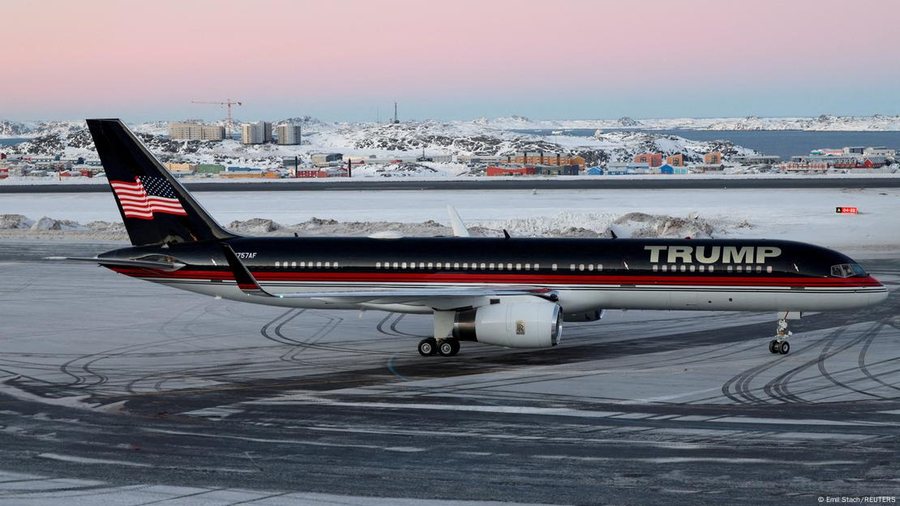
The elections will pass, but the danger will not
Johan Farkas, a professor at the University of Copenhagen, does not believe that such actions, especially anonymous ones via social media, have a significant impact: "Greenland is a very small community with close ties to each other. In my opinion, it is not easy to influence through fake online accounts or similar methods," says Farkas.
However, Greenlandic politicians are concerned about the possibility of foreign influence, such as Elon Musk's tireless support for extremist populists in European countries.
That is why, in early February, the Greenlandic parliament passed a law that completely bans foreign or anonymous financial donations to political parties, with the exception of those from Denmark.
Professor Farkas believes this is the right response. Following Trump's statements, Greenland's Prime Minister, Mutte Egede, also took to social media with a clear message: "We don't want to be Americans or Danes, we are Kalaalis." The Americans and their leader need to understand this."
Egede is the leader of the Inuit Community Party, which, together with the social democratic Progress Party, has a convincing majority in the regional parliament. But Professor Farkas warns: "It is important to continue to monitor the situation closely and to understand that this threat will not simply disappear after the elections." "As long as the US aims to take control of Greenland, there is a risk of various campaigns to expand its influence," the expert emphasizes. /DW/ (A2 Televizion)

